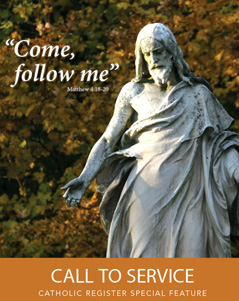Klassen’s sports ministry has led him to work with professional sports teams such as the B.C. Lions, the Vancouver Canucks, Abbotsford Heat and the NBA’s Vancouver Grizzlies before they moved to Memphis.
“What I do with the Canucks and Lions, whether in the playoffs or in the season, is as a discipler, mentor and friend,” Klassen said. “I think it’s similar to what we’d do in the Church in a pastoral role.”
He felt especially at home with the Grizzlies because, like many other chaplains in his ministry, the Abbotsford resident knows athletes’ stresses first-hand, having played college basketball in the Okanagan and at Simon Fraser University. Klassen had always dreamed of playing in the NBA, but found he couldn’t reach that next level.
“When I got involved with the Vancouver Grizzlies I realized my dream of making the NBA, but as a chaplain rather than as a player,” Klassen said. “It’s interesting how God blesses us in ways we never expect.”
Despite the focus on the individual’s spiritual well-being, Klassen said that doesn’t mean sports chaplains don’t concern themselves at all with an athlete’s performance. They simply approach the topic from a different perspective than coaches, trainers and psychologists.
“When you’ve looked after your spiritual life — understanding God has a great plan and destiny for you — (and) when you can accept He is in control and you’re comfortable with who you are and how God’s gifted you, you’re free to perform mentally and physically unhindered,” Klassen said. “You just need to take the talents God’s given you and use them to fulfill the responsibilities before you on the team, within the rules of the game, and you need to be thankful for the opportunity from God.”
He added that when athletes realize that God doesn’t make everyone the same, they can work together better as a team.
“(When) you understand God didn’t make everyone the same and you are as uniquely made as the next guy, then you don’t have to look at your neighbour and say, ‘Why can’t I be like him?’ ” Klassen added. “You can look at him and say, ‘We need that guy,’ because his gifts make us a complete team.”
Klassen knows that not all athletes are religious or spiritual and that they aren’t always looking for spiritual guidance as much as trying to reach out to someone in a world where real friends can be hard to come by.
“The reality is in the difficulties of the games: where you’re competing for a job with one of your teammates, and where the pressures to perform and the stress of possibly not playing are always present, there are many times you need to turn to someone (on the) outside,” Klassen said. “That’s another job of the chaplain: we’re a listening ear.
“Because many of the chaplains were sportsmen themselves, we know the dynamics of the game and therefore are able to identify and give good counsel.”
(The B.C. Catholic)
This article is part of our Call to Service special feature.


